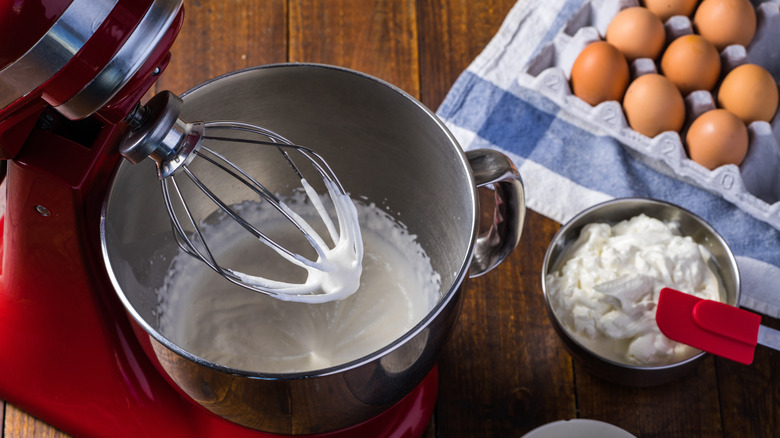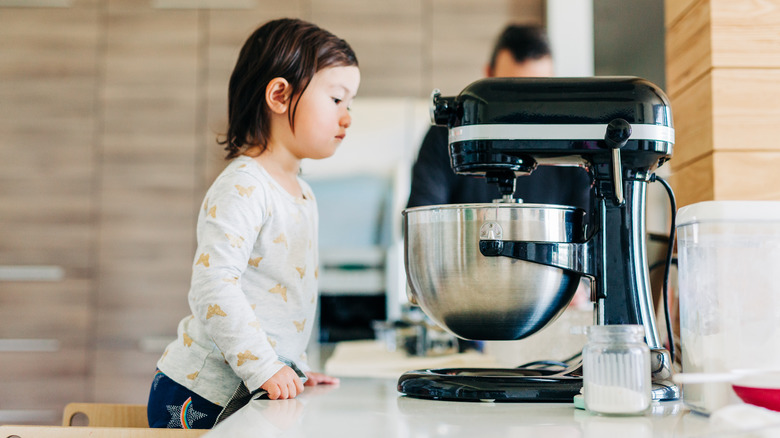The Real Reason You Should Start Mixers At A Low Speed
Stand mixers make quick work of certain cooking jobs. Whether cranking out whipped cream or kneading bread, a good mixer takes laborious tasks and turns them around with efficiency, and saves our arms in the process. While it's tempting to go from zero to 100 with these little workhorses, low and slow is the best way to approach using them.
Practically speaking, turning on a mixer at full speed is a great way to make a mess of the kitchen. But batter splatter isn't the only thing that can go wrong when turning up the intensity.
According to Southern Living, jumping too quickly between mixing speeds can put a lot of wear on the motor. To keep your mixer humming for years, start slow and gradually bring the mixer up to speed. Similarly, forcing a mixer to grind out a job on a gear that's too high can kill the motor. Fast and Foodiest knows from experience that mixing a ball of heavy dough at a speed higher than the one recommended by the manufacturer (in this case, a KitchenAid) can cause the gears to grind down. (Food on the Food explains that KitchenAid installs a fail-safe gear that breaks so that the motor won't wear out.)
Why starting your mixer on low is the way to go
Bakerpedia says mixing ingredients properly is critical for good baking because not only does it fully combine the ingredients but it traps air in the batter or dough. This aeration creates a lighter and fluffier consistency; Or, in the case of bread dough, activates more gluten.
While kicking the mixer into high gear may feel like a speedy shortcut to aeration, resist the urge to go full-tilt boogie. Cooks Illustrated points out that in some instances, like whipping egg whites for meringue, it's best to start slow and work your way up to a higher speed. The slower speed stretches the proteins in the eggs, giving them more room to expand, thus creating a more voluminous end product. Southern Living advocates starting slow for whipping cream as well.
Confused by what speed the numbers on your mixer actually correspond with? The Bakeologie has a handy guide that explains the speed controls for KitchenAid, the creator behind the best stand mixer for home kitchens, according to Food Network.

